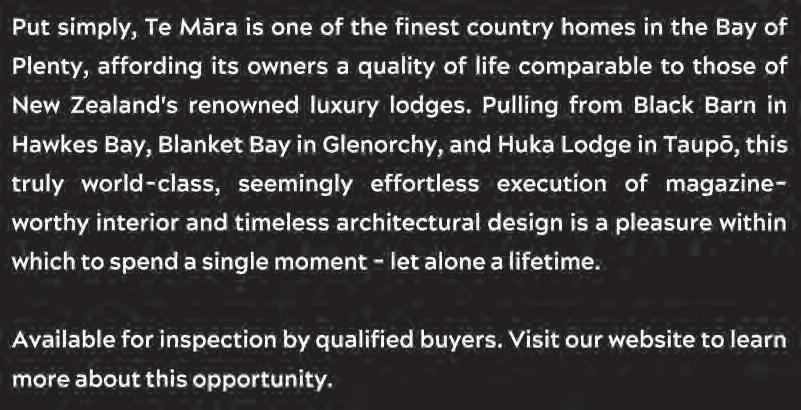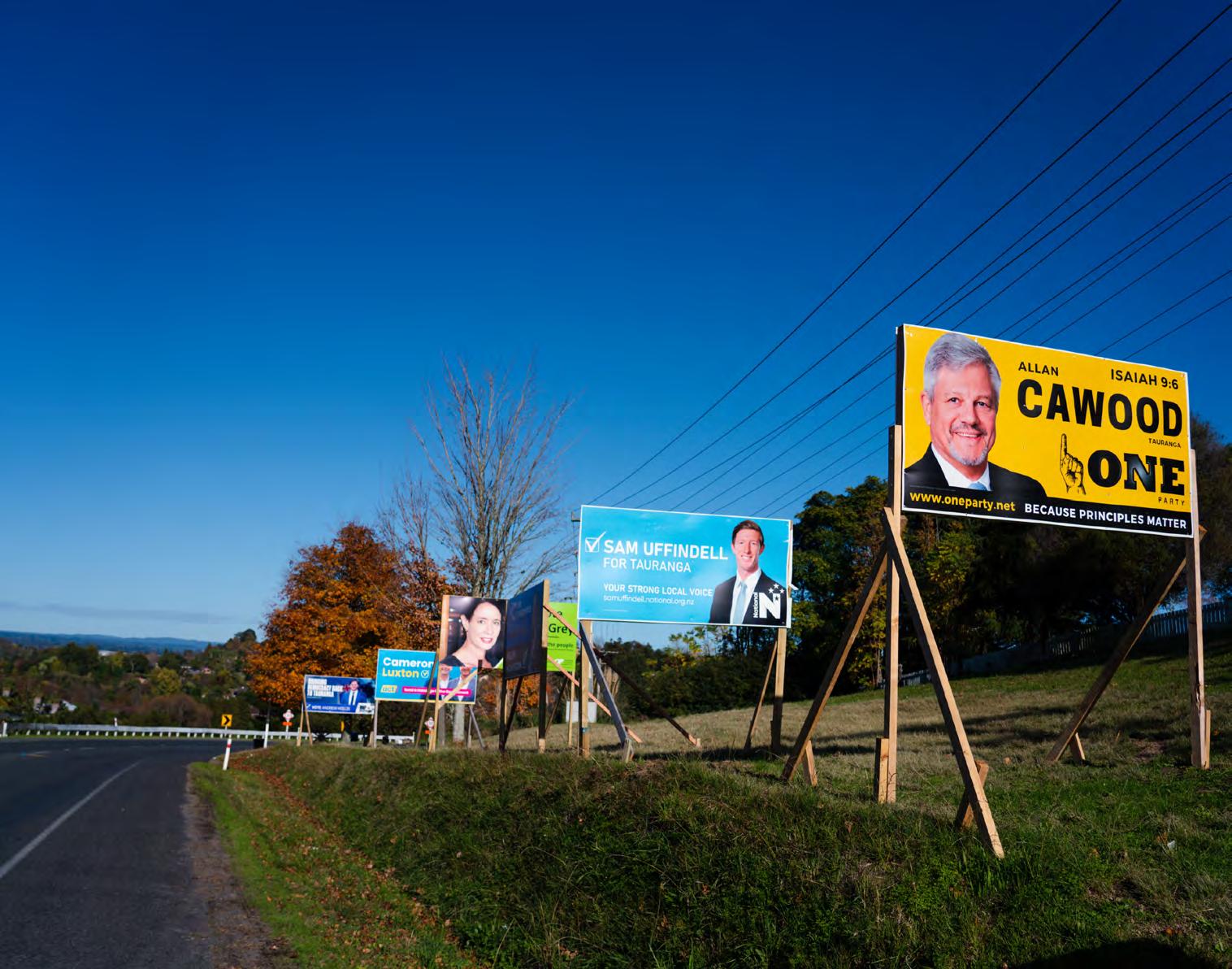
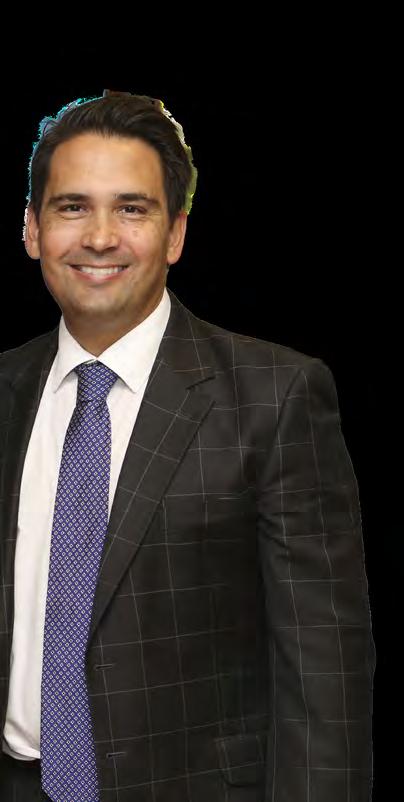
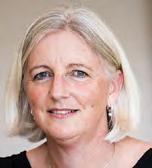

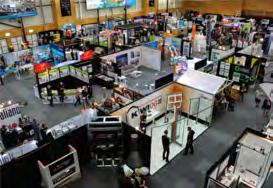






















An app-driven home cleaning service based on the same model as Uber is poised for launch in Tauranga this month. NexDo has already been operating in Auckland, Wellington and more recently Hamilton, with the addition of Christchurch and Tauranga completing its plans for initially covering the country’s five main cities.
By RICHARD RENNIE
NexDo’s founder entrepreneur Sakshin Niranjan said his inspiration for launching NexDo came from his involvement in the ride start up Hola, a rival to Uber. “I came over from India to help get it off the ground in Auckland, and after doing that for two years, was inspired to apply a similar sort of approach to the domestic home cleaning market.”
Typically an industry dominated by a large number of one or two person operations, Niranjan says it can be a market notoriously difficult for home owners to identify good operators who will deliver a consistent, quality level of service for a set amount. “It is a disorganised market, and one where it can be very hard to enter knowing what you are going to get, for what price.”
Funding secured
Eighteen months into operation NexDo has secured more than $3 million in funding and the support of two high-profile backers, Rod Snodgrass the ex-CEO of Spark Ventures and ex Infratil CEO Marko Bogoievski.
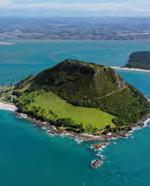


Niranjan says the business model is proving good not only for customers, but also cleaners and the industry as a whole.
“We have worked to ensure there is a certain standard met from NexDo’s approved cleaning operators.
“They have checklists they have to complete including taking pictures of the jobs before and after. We also offer services to help individuals become commercial operators, including helping set up their payment systems and setting up GST.”
He says over the past 15 months the company has overseen the establishment of 120 operators setting up formally as full time professional domestic cleaners. “And these are often people who may have been working part time in this role for a while and can now see enough in it to make it their full-time role.”
Aiming for lifting standards
He attributes the company’s 20 percent charge and quality assurance programme as helping lift the overall standard of service offering, and helping operators move beyond an hourly rate approaching the living wage to well above, up to $55 an hour.







But even before commencing offering services via the app, candidates are thoroughly screened.
“Operators have to have been working in the sector for three years and produce a Ministry of Justice certificate to prove they have no convictions. Then they are subject to some trial cleaning jobs to assess their performance, before enabling them to start operating via NexDo.
“It is really similar to what people now expect from Uber, where there are very few problems, your car just turns up and takes you where you need to be, fuss free.”
The customer will have a NexDo account, from which their payment is deducted, with cleaners paid for the previous week’s work in a single weekly payment, helping simplify their admin. The company is focusing on a breadth of home cleaning services that extend to car washing, exterior house washing, lawnmowing, and even BBQ cleaning.
“We pay close attention to feedback from our customers in terms of things they may want. For example, we found out from their feedback that dog walking could be a service to offer through NexDo.”
He said there is a distinctive seasonal pattern in what consumers are wanting from the service. January to March are strong on house moving cleans as people sell up and shift houses, while carpet cleaning in winter is popular due to pets tramping in and out of the home.
“We are very much led by what our customers are wanting and will work to offer services that fit around that whole domestic cleaning/services area.”
www.bopbusinessnews.co.nz
CONTACT INFORMATION
PUBLISHER
Alan Neben, Ph: 021 733 5366
Email: alan@bopbusinessnews.co.nz
EDITOR
David Porter, Mob: 021 884 858
Email: david@bopbusinessnews.co.nz
PRODUCTION – Copy/Proofs/Graphic Design
Times Media – Clare McGillivray
Email: clare@times.co.nz
ADVERTISING INQUIRIES
BUSINESS DIRECTOR
Pete Wales, Mob: 022 495 9248
Email: pete@bopbusinessnews.co.nz
ELECTRONIC FORWARDING
EDITORIAL: News releases/Photos/Letters: david@bopbusinessnews.co.nz
GENERAL INQUIRIES: info@bopbusinessnews.co.nz
Bay of Plenty Business News has a circulation of 8000, distributed throughout Bay of Plenty between Waihi and Opotiki including Rotorua and Taupo, and to a subscription base. www.bopbusinessnews.co.nz
Bay of Plenty Business Publications
309/424 Maunganui Rd, Mt Maunganui, 3116
Bay of Plenty Business Publications specialises in business publishing, advertising, design and print media services.
I am amongst those who are amazed that the US seems incapable of taking any concrete action to stem the appalling flow of mass shootings in that country.
By most estimates, the US has the highest number of mass killings pro rata of any developed country in the world. The recent killing of 19 small school children and two of their teachers in Uvalde, Texas is the latest, but will surely not be the last. Sadly, it all seems to come down to money.
As a citizen of New Zealand, who has also been privileged to work and reside in many parts of the world, I am all too aware that there are few better places to live than New Zealand.
Even here, we have suffered some appalling killings, most notably the 2019 shooting of 51 people in Christchurch, by a lone gunman described as a white supremacist. Fortunately it was a relatively rare event and prompted new legal action. Were it to happen several times a year, we would, I like to feel, take even firmer action to prevent further recurrences.
US politics is gridlocked
So why do the same terrible killings continue to keep happening in the US while
no real action is taken? The answer is simply politics and money. Basically, US politics is gridlocked.
In Texas, where – when we went to press the Republican Governor was still equivocating as to whether or not he would attend the annual general meeting of the National Rifle Association (NRA ) in Texas this month – the next governor’s race is likely to see multiple millions of dollars spent and to be the most expensive in state history.
The NRA is a major source of funding for political campaigns. The organisation has issued its usual lame apology for the latest shooting. Typically, they resorted to their standard argument when their policies are questioned, stating that the killing was the work of “a lone deranged criminal”.
It is transparently obvious that “normal” people do not choose to go out and shoot dozens of innocent victims. However, only in states like Texas with very liberal gun laws, is an 18-year-old able to go out and buy two automatic rifles and large quantities of ammunition
without even a cursory background check.
As one commentator put it, the NRA doesn’t care about the motives behind these attacks.
“What matters to the NRA is that the average member continues to see any attempt to ban the weapons of war that the Uvalde shooter was able to legally purchase as an attack on his own hunting rifle.”
The NRA was founded in 1871 by two US Civil War veterans as a recreational group designed to “promote and encourage rifle shooting on a scientific basis”, according to a BBC report.
Democratic operative Ron Brownstein, writing in The Atlantic, says the same “doomed dance of legislation quickly begins” after each mass shooting. But as he notes, the stalemate over gun-control legislation since Bill Clinton’s first presidential term ultimately rests on a much deeper problem: the growing crisis of majority rule in American politics.
Polls note that while Americans don’t believe gun control would solve all of the prob-

lems, a commanding majority supports the central priorities of gun-control advocates, including universal background checks and an assault-weapons ban.
“Majority opinion in the nation runs into the brick wall of a Senate rule – the filibuster – that provides a veto over national policy to a minority of the states, most of them small, largely rural, preponderantly white, and dominated by Republicans,‘ writes Brownstein.
Brownstein says the impassable opposition reflects the GOP’s reliance on the places and voters most deeply devoted to gun culture. “The hard truth is that there’s no way to confront America’s accelerating epidemic of gun violence without first addressing its systemic erosion of majority rule.”
I’m pleased this month to announce our first column from a superstar performer who is relatively new to the Bay – welcome Freddie Bennett. I’m sure you’ll find his business advice informative. (see p 14).

In case you missed last month’s edition Scan to subscribe

Don’t miss the chance to tell your business story
495 9248 or email pete@bopbusinessnews.co.nz. Advertising bookings close Wednesday 15th June, 2022. Published/In the market: Friday 1st July, 2022



One of the most startling elements of the Tauranga by-election that will take place later in June is the sheer number of candidates. The inescapable conclusion – since, to be kind it, would seem likely that few of the candidates stand a chance of winning very many votes – is that many are simply attempting to raise their visibility ahead of the eventual return to local government democracy when the Tauranga commissioners leave and the city returns to local body elections. (See candidate box)
By DAVID PORTER
Tauranga City Council’s commission has announced that it wants three key infrastructure priorities to be top of mind for candidates at the forthcoming parliamentary by-election.
These are Hewletts Road/Hull Road/Totara Street improvements, State Highway 29 grade separation and the Port of Tauranga extension, which commissioner Anne Tolley said were all vital and need to be accelerated to get the city moving.
“Industry, business groups and the Western Bay of Plenty’s councils all agree that these projects are pivotal for the region, simply because they will have the biggest impact on our economy and residents over the next decade and beyond.”
By the time some of our readers get to this feature, the results of the Tauranga by-election should be known. Nonetheless, we thought it was important to record the event as a significant development in the city. It is very encouraging to see a good slate of candidates putting themselves forward. We have also noted strong interest and attendance at the various candidates’ meetings and debates organised around the by-election.
Surprise departure
We describe the by-election as a surprise because, frankly, it was. Simon Bridges has served 14 years as MP for the city. A former queen’s counsel of Maori descent, he had forged a solid reputation in Wellington. He has been ably supported by Western Bay National MP Todd Muller.
At one point recently a leader of the National Party, Bridges bowed out – wisely in my view – at the latest leadership round and gave way to new broom Christopher Luxon.
At this point National is ahead in the polls, and there is a reasonable expectation the party might win the next country-wide election over Labour. That would have meant at the least a front bench position for Bridges.
However, speaking with Bridges after his retirement announcement, it was clear he felt that 14 years serving in Wellington, often away from his young family for long periods, was long enough and that he wanted a new challenge.
That has come in the form of taking up the role of chief executive of the Auckland Chamber of Commerce from long-serving Michael Barnett, who is standing down. Bridges will
Candidate name Party
CAWOOD, Allan ONE Party
COKER, Christopher Aotearoa Legalise Cannabis Party
CORBETT, Tony Independent DICKSON, Gordon Independent GREY, Sue NZ Outdoors & Freedom Party
HOLLIS, Andrew New Nation Party
HOUGHTON, Helen New Conservative
LAMARE, Yvette Independent
LUXTON, Cameron ACT New Zealand
TINETTI, Jan Labour Party
UFFINDELL, Sam National Party WAKEMAN, Peter Independent
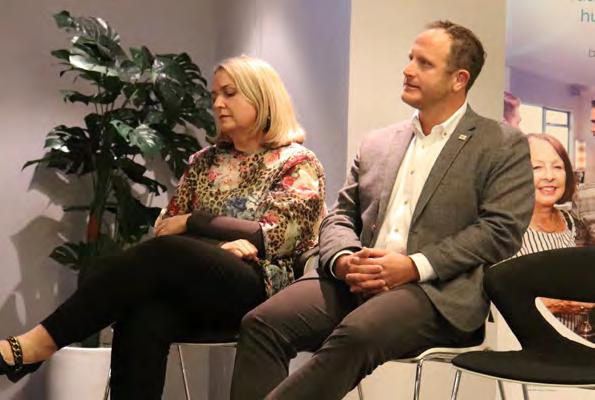
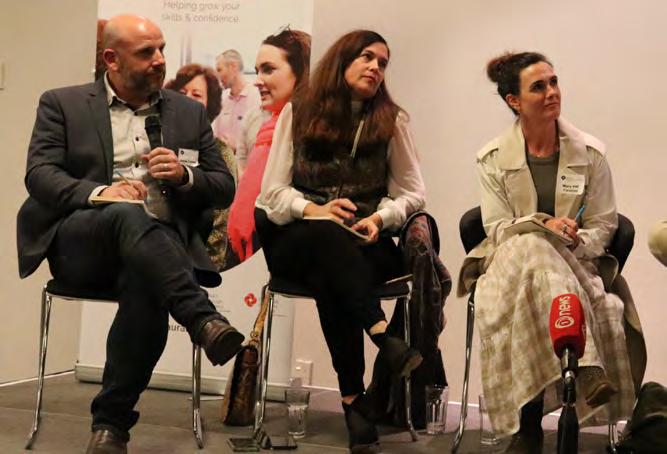
also be moving to Auckland though he plans to maintain his key contacts in Tauranga.
New role beckons
Auckland Chamber chairwoman
Charlotte Parkhill confirmed that Barnett would step down from the role in August, but would remain involved in the organisation, driving key projects including Firststeps, a mental health initiative with government focused on business, the Regional Business Program, the NZ Chamber network, and his role with the International Chamber.
Barnett was appointed chief executive in 1991 and is generally seen as having done a good job in asserting the organisation’s profile. When he took over, the chamber had a smaller staff and a membership that tended to reflect larger business, but he has changed that perspective, growing the chamber significantly.
Barnett spoke warmly of Bridge’s imminent arrival and the usefulness of his significant contacts in Wellington and throughout the country as a result of his political role.
Parkhill said the chamber board has been consistently impressed with the voice that Michael had given to business and his entrepreneurial approach to issues faced by the sector.
New candidate slate
National named Rabobank banker Sam Uffindel as its candidate, while the Act Party launched local builder Cameron Luxton as its candidate. Labour has selected long-term list MP and ex headmistress Jan Tinetti as its selection.
However, Prime Minister Jacinda Ardern has downplayed her party’s chances of winning the seat, given it is generally seen as a safe National seat.
In addition, as the accompanying box reveals, there are a further nine
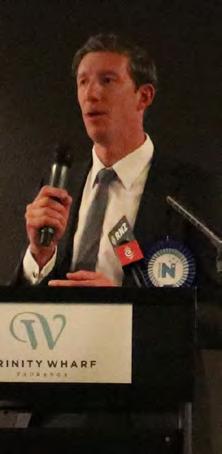
candidates standing.
One bright spot on National’s horizon is that semi-retired NZ First frontman Winston Peters, after hinting he might stand, opted at the last minute not to do so.
According to senior NZ Herald political writer Thomas Coughlin, Bridges’ valedictory speech drew the curtain on a political career that spanned more than a few scandals. The reporter referred to Bridges’ combination of unique skills.
“He’s very smart. He went to Oxford and worked as a Crown Prosecutor, so he definitely has book smarts. But he’s also got this scrappy West Auckland street-fighter vibe as well,” wrote Coughlan.
“Here’s someone who can outwit with street smarts in an all-out political scrap, but he also happens to be a policy brain capable of hitting you with book smarts too. Bridges also came across as a pretty down-to-earth, normal guy. But behind that, you have
a very clever, calculating politician.” One of the key points Bridges made in his valedictory speech and in his conversation with Bay of Plenty Business News, was that you “have to follow your gut a bit more”.
Vigorous debates
This paper attended a number of candidates’ meetings, including that organised by the Tauranga Chamber of Commerce, in which Uffindel, Luxton and Tinetti took part, along with an interesting panel of debaters who threw questions at them.
The panel was made up of Mary Hill – Partner Cooney Lees Morgan, Bridgette Tapsell – Whare PR, and Jamie Lunam – Jenkins Freshpac, with Will Johnston coordinating the debate.
Clearly all three of the candidates we heard were thoroughly grounded in key local issues.
Anne Tolley said some of the early commentary from by-election candidates had been “out of touch” with the real needs of the constituency. She said the debate was “an opportunity to discuss and promote actions which will have huge long-term benefits for Tauranga.” She emplored them to “keep our electoral conversations grounded and focused on real world solutions to real world issues.”
In the not so distant past, Budget day would herald significant, and often unexpected, tax announcements. But in more recent years, the big tax changes have more often than not been well-signalled and consulted on outside the annual Budget process.
Budget 2022 was no different in that no major tax announcements were made. We did not see any changes to the personal tax rates or marginal tax bands.
We also did not see the hoped-for employer tax concessions to encourage the use of electric vehicles in their fleets and to promote public and shared transport options for employee travel to work.
The Emissions Reduction Plan issued just days before the Budget included reference to Inland Revenue having conducted some research into options in this space, so maybe we will see some good news in
the not too distant future.
What did take us all by surprise though was the Government’s cost of living package. Whatever your thoughts on the value or potential effectiveness of the $350 cost of living payment to be made to eligible taxpayers, the tax system will be integral to the implementation of this payment.
Details yet to be published
While detailed eligibility criteria are yet to be published, the official documents tabled along with the legislation for the payment, provide some insight as to how eligibil-
– A great time to exit your business
While the economic upheavals of the last two years are not about to recede into the distant past any time soon, the second quarter of 2022 brings with it tangible hints of normality, along with further evidence of a generational shift in the make-up of serious business investors.
LINK Business Brokers Business Development Manager, Steven Matthews, says that with the country’s borders reopening and people traveling more freely once again, positivity about the future is being reflected in renewed transactional activity in the business sales market.
“Despite the remaining challenges ahead, buyer and seller confidence is definitely returning,” he says. “While there is plenty of talk in the media about rising interest rates, historically these remain on the low side when compared with past decades. This means there remain plenty of options for business buyers
looking to acquire funding and service debt.”
Steven also says that in recent times younger Kiwis have identified the need to take control of their own financial destiny in a way that previous generations didn’t. Increasingly, the aspirational desire to build equity independently has replaced universal reliance on a government-issued pension to see New Zealanders through their later years.
“Business ownership is one of the best ways to build equity, and there is a noticeable generational shift in younger people aspiring to own their own business, rather than climbing the ladder within an existing company in order to help secure their future.
“What does this mean?
Essentially, there are more buyers out there for businesses, especially within the SME sector. In tandem with

ity will be assessed and the payments made. The $350 payment will be made to the roughly 2.1 million qualifying individuals aged over 18 who are earning less than $70,000 and who are not in receipt of the winter energy payment, with the income test being based on taxable income information for the 2021/22 tax year.
The payment will be made in three monthly instalments, starting 1 August 2022, coinciding with the completion of Inland Revenue’s “auto-calc” process and the 7 July 2022 tax return due date for taxpayers without a tax agent.
> BY ANDREA SCATCHARD
Andrea Scatchard is a Tax Partner at Deloitte, based in the Bay of Plenty. She can be contacted on ascatchard@deloitte.co.nz
Eligibility will be checked at each payment date, so if you become eligible for the winter energy payment part way through the August – October period you will not qualify for the remaining cost of living payments, and vice versa if you cease being eligible for the winter energy payment.
If you think you are eligible for this payment and are not on a tax agent’s list, you should make sure that you check your reported income in myIR well before 7 July, make any updates required to ensure your income is correctly reported and check
that the right bank account is loaded in the system. All going well, if you have done this the money should just appear in your bank account.
Around 500,000 individual taxpayers use a tax agent to complete and file their income tax returns. Many of these will be eligible for the payment in the sense that they will have income under the $70,000 threshold for the 2022 tax year, but because tax agents do not need to file all of their client tax returns until 31 March of the following year, not all of the eligible taxpayers will
have their returns filed before 1 August.
If you are one of these taxpayers, your eligibility for the payment will be assessed when your tax return is filed and Inland Revenue has the full picture of your income for the 2022 year. This may not be until after 31 March 2023 for those individuals who leave filing their returns until the last minute, so if you are counting on having this money earlier, make sure you provide your information to your accountant as soon as possible.
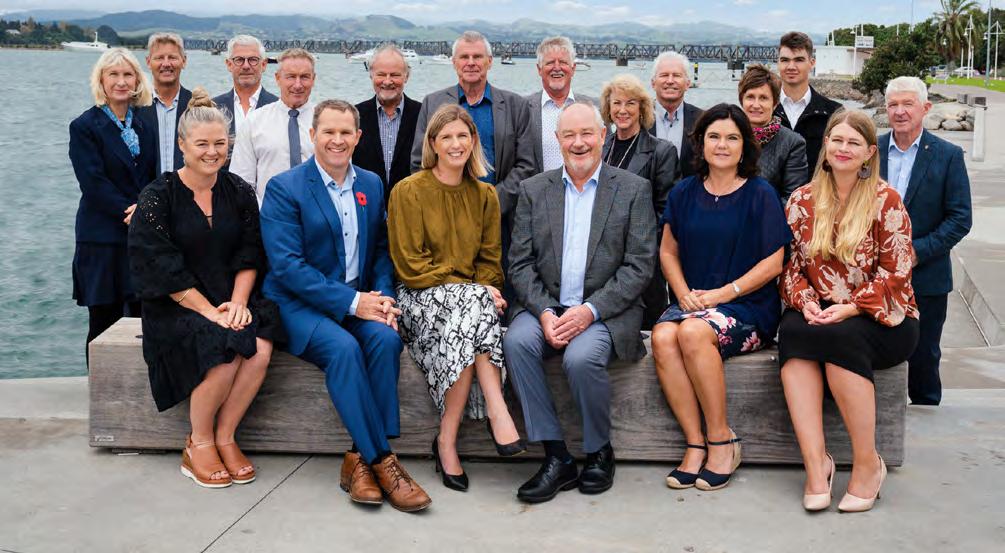
local team,LINK Bay of Plenty – we sell businesses from $100K - $30M. Photo/Supplied.
this is the inarguable fact that baby boomers are looking to exit full-time working life; something that is occurring irrespective of other market or economic considerations.”
And as positivity returns, the types of businesses that are proving attractive to potential purchasers are also evolving.
“After a significant lull through the worst of the pandemic, smart buyers will once again be considering business investment in both the hospitality and tourism sectors,” he says. “There is no immediate fix in these industries of
course, but with the borders opening comes undeniable opportunity. Industries seeing rejuvenated post-pandemic buyer demand include general service, manufacturing, construction and the import and export sector.
“Also consider that businesses in the hospitality and tourism sectors have been forced by circumstance to become leaner in order to survive the downturn. They have had to put their operating costs under the microscope in a manner that companies in other sectors might not have.”
“Now we are starting to see the moment where those hard decisions will pay dividends as streamlined businesses showing better margins on the books come onto the market.”
“While the pandemic continues to cast a shadow, the months ahead still brim with possibility for both buyers and sellers alike,” Steven concludes.
Knowing whether your business is ready for sale can be a difficult process but with the guidance of an experienced business sales team, the process can be dealt with ease and success to ensure that you achieve maximum value. Few business owners decide to sell “on the spur of the moment” unless unforeseen circumstances create an urgency to sell. You may be wondering what to do next and what processes are involved in a successful and smooth transaction. LINK Business Brokers Bay of Plenty can help you and your business achieve the best possible outcome.
For more information contact LINK Business Brokers Bay of Plenty 0800 225 999.


The Franchising New Zealand 2021 Survey provides insight into the significant contribution that the franchise sector makes to the New Zealand economy.
The size of the sector
Franchising is ingrained in every economic activity in New Zealand. From dog washing, gardening, to cafes to home renovation and car dealerships, the reach and depth is immense.
There were 590 franchise brands operating in New Zealand in 2021. When you mention franchising many people still think of food and beverage, accommodation or retail.
These categories reduced slightly but we saw growth in construction, which brands represent 14.8 percent of franchise brands, administration and services (which now represent 12.8 percent of the total franchise brands.)
When you look at contribution to GDP you can see that franchising does really matter.
Sales turnover for franchise sector was estimated at $36.8 billion or approximately 12 percent of New Zealand’s Gross Domestic Product.
Impressively this represented approximately $9.2 billion growth over the period of the previous survey (in 2017).
When you add motor vehicle sales of $13.7 billion, and fuel retail sales of $8 billion, sales for the entire franchising sector were estimated at $58.5 billion in 2021.
In spite of very difficult trading conditions the total
A number of key decisions for Tauranga’s future development have been confirmed following an extensive consultation process on Tauranga City Council’s 2021-31 longterm plan amendment (LTPA) and 2022/23 annual plan.
By ANNE TOLLEY, Tauranga Commission Chair

Commissioners deliberated on a series of issues and options reports arising from the consultation before adopting resolutions, which will now be incorporated in the final plans and brought back for adoption at the end of June. Without doubt, the biggest decision made was to proceed with the full masterplan for Te Manawataki o Te Papa – the Civic Precinct development. This will see a $303 million, single-stage phased development of the precinct over the next eight years, starting with the construction of the library and community hub facility later this year and then moving on to the construction of a museum, exhibition and events centre, civic whare, plaza and streetscape upgrades and waterfront development linking to the civic precinct through Masonic Park. This significant redevelopment programme is subject to achieving 50 percent of the funding from non-ratepayer sources and has multiple aims,
sector saw an increase of approximately 26 percent.
All of these sales added to the government coffers via a variety of taxes including GST, company profits/income taxes, PAYE, ACC and other taxes.
Foreign earnings were also generated by the franchise sector, with just over 20 percent of franchisors reporting to have entered and be operating in international markets. Further benefits, though difficult to measure, are generated by flying the New Zealand flag abroad.
Franchising also provided direct returns to the community.
Of the franchise systems that participated in the survey, 90 percent reported that

> BY NATHAN BONNEY
Nathan Bonney is a director of Iridium Partners. He can be reached at nathan@iridium.net.nz or 0275-393-022
they were engaged directly in community activity or directly sponsored such. The average contribution to community activities was $30,000 per franchise brand.
Employment and training
Franchised businesses directly employ more than 156,820 people in New Zealand. This has increased 8,000 per year each year over the past four years.
Not only are franchise businesses employing significant numbers of people, franchises also make a significant contribution to increasing New Zealand’s economic productivity. In addition to training franchi-
sees (whom own the individual business units), franchising is a huge training machine.
Median training hours for new employees was reported at 20 hours per annum and impressively, 17 percent of the responders (franchise brands) to the 2021 survey reported that employees receive 100 hours or more training in their first year.
Providing the ability for people to successfully be in business for themselves
The statistics that provide me with the most pleasure are those related to business ownership. There are an estimated
32,300 businesses operating under a franchise format.
The vast majority of franchises are small to medium enterprises, with an average start-up cost of around $150,000. Franchising is providing a significant number of Kiwi’s the ability and support to successfully pursue their entrepreneurial aspirations.
Data and statistics in this article are from the 2021Franchising New Zealand Survey produced and endorsed by Massey University and produced in conjunction with the Franchise Association of New Zealand. Iridium Partners are proud supporters of the 2021 Franchising New Zealand Survey.

first and foremost being to restore the cultural and civic heart of the city and create a destination locals and visitors can enjoy and be proud of. It will also encourage other development in the city centre, ensuring it is once again a place people will want to live, work, learn and play. And with all of those extra people around, it will breathe new life into the CBD’s retail sector.
Getting over the line
Te Manawataki o Te Papa has been a long time coming –these are proposals which in some cases have been talked about for 20 years – so it’s great to have finally gotten a great project over the line, which will create huge benefits for generations to come.
Other notable decisions include resolutions to include Infrastructure Funding and Financing (IFF) proposals in the LTPA to help fund the City’s Transport System Plan projects and enable the development of 2,000 homes in Tauriko West.
The IFF approach means a Crown-owned company borrows money for an approved project and then makes that money available to the Council to fund the investment concerned.
Repayments are made using levies on the properties benefiting from the project and the debt stays off the Council balance sheet, leaving debt headroom which can be used for other important community priorities.
Subject to the final cost
of this approach making economic sense, which we won’t know until the IFF proposals have been put to the private investment sector, and some structural issues being addressed, IFF funding could provide $200 million to help fund a suite of major transport projects, including Cameron Road Stage 2, which will continue the upgrading of the city’s main southern corridor from 17th Avenue to Barkes Corner and beyond.
Because the whole city benefits from transport network improvements, levies would apply to all properties, offset by reductions in the transportation targeted rate.
A further $60 million would be raised to help fund Tauriko West infrastructure, with repayment costs levied
on properties within this new growth area.
Businesses will also be aware of increases in the city’s commercial differential rate and transport targeted rate, which by 2024 will see the sector paying for half of the transport activity, which is in line with sector usage, and will also bring Tauranga more into line with other metropolitan centres.
Both changes will be included in the final annual plan.
Commissioners understand that many businesses are facing economic headwinds right now, so the solid support from the business sector for these necessary moves – which will help achieve a fairer rating system – is greatly appreciated. Nga mihi
Chatting with an acquaintance at a cafe on Saturday, he remarked how a colleague of his was diligent and hard-working, but that any mistake was jumped on by his manager. As an immigrant without his permanent residency, he was reluctant (or unable) to leave the position.
This bought to mind the topic of Leadership Blind Spots. The manager in question was either unaware of the effect of his leadership behaviour, or it satisfied an inner need. This is not reassuring behaviour for the employer during The Great Resignation, reminding me of the statistic that 75 percent of employees don’t quit their jobs; they quit their managers.
However, any one of us can have blind spots in behaviour that are unknown to us but known to others.
A leadership 360 assess-

> BY MICHAEL SHAW
Michael Shaw is managing director of Dale Carnegie BOP Waikato (www.bop-waikato.dalecarnegie.com) . He can be reached on Michael.shaw@dalecarengie.com
ment can identify blind spots, however even with blind spot identified, change will only happen if the person understands why change is necessary and wants to change. For this to happen, first there must be emotional change (a shift in attitude, beliefs, perceptions, ownership, commitment) before there can be any Behavioural Change (actions, behaviours, interpersonal relations) which then lead to the desired Performance Change (outcomes, engagement, results, retention).
For example, the manager in question above may have learned the behaviour from earlier experiences with authority and is just repeating the learned, and to him, perfectly acceptable behaviour!
At least 25 percent of leadership learning and development effort needs to go into emotional change or the why before the training is delivered or the investment will be largely wasted.
In a 2018 study involving 3300 participants in 14 countries, Dale Carnegie discov-
ered the four most common leadership blind spots:
Blind Spot # 1
Showing Appreciation: Modern leaders are well beyond the dismissive “Consider your paycheque your thank you note”. Yet fewer than half of the employees in the study said their own supervisor makes them feel sincerely appreciated most or all of the time. Often it is the frequency of praise or not being sincere where most leaders fall short.
Blind Spot # 2
Admitting When Wrong: A willingness to “admit when they are wrong” was the leadership behaviour that generated the largest disparity between its importance and supervisors’ performance.
Blind Spot # 3
Truly Listening: Asking isn’t the same as listening, and employees know the difference. Just 49% of respondents said they could confidently expect that when they spoke with their leader, they’d truly listen most or all of the time.
Blind Spot # 4
Honesty with Self & Others: No one wants to think of themselves as dishonest, and yet nearly two in ten employees (17 percent) stated that their
Trustpower Baypark is unique in the range of activities we can host in one location. With the easing of Covid restrictions, the remainder of 2022 has an exceptionally high-level of scheduled activities. Back-to-back events and quick turnarounds are the order of the day for Trustpower Baypark as the venue emerges from the challenges of the past two years.
The layout of Baypark includes the Arena and Stadium surrounded with fields and large outdoor areas, which are perfect for a variety of events. It is common to have several events taking place at once, using indoor and outdoor spaces, all with different entry/exit points to manage the flow of people and traffic.
There are a number of national and international sporting events such as Silver Ferns v Australia in October, Squash World Teams Cup and NZ Squash Nationals, and NZ Weightlifting Championships in November. Gymnastics and Volleyball Nationals all scheduled in 2022/2023.
Entertainment promoters are active again with National and International acts booked. Baydreams will be back in January which is a massive event for Baypark and Tauranga.
Business Events activities are also strong with conferences, meetings and corporate events. Baypark is attracting National and International conferences to Tauranga. There is a growing interest in Destinations like Bay of Plenty. The environment with its open spaces and outdoor attractions are appealing to people.”
Some of the activities lined up for the enjoyment of the community are:
7 Days Live – 19 June
7 Days on TV is pretty loose and real, but 7 Days LIVE – on stage with no cameras, censors or editing – is a whole different level of uncut fun. In June, see Jeremy Corbett, Dai Henwood, Justine Smith, Paul Ego, Ben Hurley, Mel Bracewell and the team on a stage right in front of you. In the first half, seven of New Zealand’s best comedians take turns to smash you with their best stand-up comedy, then it’s a no-holds barred live version of 7 Days. It’s a show that you won’t forget. Recommended for ages 15+. Chaos – 11 June
We have cooked up the goods for you this time Tauranga, with some of the

UK’s finest drum and bass artists, all in one place for a chaotic night of top tier music. It is time for Tauranga to party. Bay Park Stadium Lounge from 7pm – Midnight. Featuring the Prototypes with Special Guests Danny Byrd & Phibes. Support from Rayne and Stonez. 18+ event.
Armageddon – 23 & 24 July
The Tauranga Armageddon Expo is back with two days of gaming, cosplay, anime, collectables, comics, amusements, celebrity guests, movies, television, music and more. Experience the incredible with Armageddon. Follow the Armageddon Expo Facebook, Twitter and Instagram for updates.
D1NZ – 29 & 30 July
Australasia’s largest action sports festival will take place at Baypark. Thousands are expected to gather, with some of the biggest sporting legends from around the world set to compete. You do not want to miss this one. X*AIR 2022 in the Arena is set to return alongside the Valvoline
D1NZ National Drifting Championships Grand Finale in the Stadium. The Festival features Skate, BMX, scooter, and BLINDSPOTT in the stadium lounge for the after-party Saturday night.
Battle in the Bay – 6 & 7 August
Battle in the Bay 2022 Cheer Championships. Watch the amazing talents of some of the best Cheerleaders across the country as they come together to compete at Trustpower Arena. Cheerleading is one of the fastest-growing sports in New Zealand.
Tauranga Careers & Business Expo – 12 & 13 August
Thousands of students, job seekers and those looking to upskill or change career are expected to descend on Trustpower Arena for the Tauranga Careers & Business Expo in 2022. The annual Tauranga Canvas Careers Expo aims to give people the opportunity to explore their options. Hosted annually by Priority One and Tauranga Rotary, the free two-day expo features interactive displays and rep-
own supervisor is rarely or never honest and trustworthy with others. While the veracity of this belief maybe called into question, it’s the perceptions employees have, that leaders must contend with to effectively lead. The same vein 16 percent of respondents said their supervisor is rarely or never internally reliable, meaning these employees view their leader as behaving in ways that are inconsistent with their leaders own principles and core beliefs.
The data suggests that the return on investment on efforts directed toward these areas is significant, especially in time of skill and labour shortages. However just sending someone on a course is not likely to improve outcomes unless the effort has first been made to gain the Emotional Change or buy-in from our leaders.



resentatives from across New Zealand, ready to engage and help students and adults alike plan their career pathways.
The Seriously Good Food Show – 27 & 28 August
Are you ready for the tastiest weekend in Tauranga? We are super serious about food with this must-see event for foodies. Over 150 flavourful exhibitors bring you a huge range of food and beverages to tempt your tastebuds, featuring tastings, exclusive show specials and delicious new launches. Explore everything from chocolate, cheese and chutney to tea, truffles and tabasco, with plenty for everybody including allergy friendly, vegan or vegetarian, gluten free and organic options. See cuisine come to life in the Live Cooking Theatre, featuring our favourite chefs from restaurants and cafes around Tauranga, and enjoy the delicious offerings from The Landing Food Truck Hub.
Zespri Aims Games – 3-9 September
The Zespri AIMS Games is a strategic partnership between the four Western Bay Intermediate Schools, Sport Bay of Plenty and the Tauranga City Council. The Zespri AIMS Games is a Tauranga City Council Legacy event. All individual and team sports are superbly organised to a very high standard. Linked to various local sporting clubs, Regional and National Sporting Organisations to achieve this.
The sporting championships give 11-13 year olds an opportunity to compete as an individual or in a team against their age group in 23 different sports. Each of the sports offered in 2022 will be hosted in superb facilities.
Tauranga’s Premier Venue
Trustpower Baypark is Tauranga’s Premier Venue for conferences, meetings, entertainment, and exhibitions. Offering a complete package in one convenient location with state of the art meeting rooms, in-house catering, audio visual services, marketing/promotional services.
As a private investigator and debtor behavior consultant, I am always surprised at how people seemingly walk blindly into situations where they lose their shirts when all the warning signs were there.

> BY NICK KERR
Nick Kerr is regional manager for DebtFree NZ Ltd and director of International Private Investigations Ltd. He can be reached on 021 876 527 and Nick@debtfreenz.com
used to be surprised when people suffered losses caused by people close to them that they would never suspect. Now that I have somewhat worked out the science behind trust I am no longer surprised.
What we have noticed as a disturbing trend in over 3000 cases is that there appear to be levels of greed and opportunity that can even eclipse the trust in the closest of relationships.
Based on our experience these levels are generally: Acquaintances > $500. Friends > $2500. Family $25,000 and business partners (in a medium sized enterprise) $50,000.
The aforementioned are the levels of enrichment, or potential enrichment, at which we have found people’s moral bonds to others become malleable and greed is able to overtake loyalty.
In my time I have seen children mount campaigns of destruction against their parents to take now what would probably be left to them if they had the decency to wait.
I have seen business partners drive their business onto the rocks on purpose so they can take the
remnants for themselves in the hope that they can rebuild, then take all the profit, destroying not only their business but their own reputation in the process.
Here is an actual example from the first scenario: I was investigating a person in a certain industry for a fraud allegation; We found proven fraudulent activity concerning his conduct with six of his previous employers and over $4 million of provable losses due to his actions.
A client rang me and said he was looking at getting into business with the very person I was investigating – I told him what I knew and advised him not to entertain doing business with this particular human.
I asked the client why he would want to be in business with someone who had proven themselves to be untrustworthy. His response was that there was potential for him and the investigation subject to make a million dollars in their proposed ventures.

I explained that the last six times he had joined with business owners they had lost over $600,000 each, rather than making the $1million promised.
Although my client had the clear information presented by an objectively credible source he still decided to work with the investigation subject and lost $250,000, his reputation and a good deal of his business network.
So what is the answer?
What I have found is that the best advice regarding a situation is garnered from those who have nothing to gain or lose whether the advice is followed or not. Being able to give value in such a situation comes from not only knowledge but from objectivity and a lack of attach-
ment to the outcome other than the wellbeing of the person asking the advice.
Some of the best advice I have ever received regarding business and personal issues have come from complete strangers with no prior knowledge of either the participants or subject matter.
As human beings we cannot help our experiences or personal bias colouring the advice we give. The more of this we remove from the situation the more pure and valuable the advice is.
If you feel that a proposed partnership or business decision has both risk and reward seek the advice of someone who does not benefit from your downfall, and for goodness sake……..listen to them.
Just a thought.
Independent research institute PlantTech has changed its status to a not-for-profit incorporated society to underline its breadth of scope and better reflect the growing demand on its services.
The change to the organisation, which responds to demand amongst New Zealand’s primary sector for increased ability to leverage artificial intelligence (AI) and data science for competitive advantage, also creates an opportunity for new board directorships.
“It is the start of a new chapter. Our team welcomes everyone on board and we look forward to working with our new and past members, many of whom have been with us since our inception three years ago,” said Mark Begbie, PlantTech chief executive officer.
The partnership was founded by horticultural-aligned companies from the Bay of Plenty who have strengths in plantbased technology and innovation.
A new board will now be formed and applications from around New Zealand are encouraged to join this nationally significant institute.
The Incorporated Society model underlines the scope of work PlantTech has undertaken since its inception and welcomes diversified members under its new structure to meet the needs of growing horticultural and plant industries across the country.
“As we enter a new phase, our focus will be on cementing the capabilities we have established, scaling our capacity to deliver, and delivering substantial value, whilst serving a wider and somewhat more diverse demographic.
“PlantTech has grown beyond the Bay of Plenty, moved into new crops, and is working with significant corporates and CRIs, complementing their strengths with ours and accelerating the transition of technology into commercialisation.”
He added: “Quite simply, we exist to help businesses in the horticulture sector thrive.”

Imagine that you receive an email from your work email provider requesting that you log in to review recent activity. You click on the button in the email and try to log in to your account. The first login attempt oddly fails, but the second attempt works just fine and you’re into your account. You must have mistyped your password the first time, right?
The reality is that you may have just had your password stolen. The attacker sent an authentic-looking phishing email and the website that you initially reached was a fake. After you submitted your password, the attackers simply redirected you to the actual website to try again without you knowing any better. With these credentials in hand, the attacker can easily read through all your work emails, reset passwords for other accounts, and wreak havoc on an enterprise network.
More than 81 percent of data breaches were caused by weak or stolen passwords in 2021, according to Verizon. As the report suggests, passwords are still the dominant reason behind successful cyber-attacks. Specifically, a data breach caused by compromised credentials costs $4.37 million on average – higher than a general global average.
With a valid password in hand, attackers can leverage the user’s account to gain access to their other accounts or even protected network
resources. Passwords are often the weakest link in enterprise security.
Despite the importance of passwords, most people fail to develop secure passwords or even use different passwords for different accounts. Nearly one-fifth of Internet users create the same password for most of their accounts, while the average password was less than 10 characters long. Implementing password automation and management for your organisation directly correlates with a reduced risk of suffering from a cyber-attack. One of the most cost-effective tools that might greatly facilitate password management practices is password management software.
Password management software is a software application designed to store and manage online credentials. It also generates passwords. Usually, these passwords are stored in an encrypted database and locked behind a master password. Once all your
account usernames and passwords have been entered into the vault, your master password is the only one you are required to commit to memory.
Password management suggestions
Password management software has several benefits, from generating passwords for user logins that are designed to be strong and difficult to hack, to securely storing company credit card details and providing accessibility through syncing to selected devices. It has also been noted to save time by avoiding the “I lost my password” cycle and allowing administration access to sites and services of employees who have had to depart suddenly. Using a password manager within your IT environment is a critical part of any cyber security strategy. To choose a secure password manager you must really trust the service –after all, it will have to keep your username, passwords, and even credit card credentials safe. A good password vault will also have such fea-


> BY MARIETTE TOLMAY
Mariette Tolmay is the marketing lead at Stratus Blue. She can be contacted at mariette@stratusblue.co.nz.
tures as a Password Breach Checker and Multi-Factor Authentication, and you have to be completely sure that it will deliver its promises to the max. Do comparison research to ensure the benefits of the software tool meets your organisations needs and be mindful that many of the free pass-
Finally, New Zealand’s borders are wedging open and with it, we breathe a collective sigh of relief.
While it suggests things might be getting back to a sense of normal, Covid-19 has complicated life to such an extent that it’s going to take a long time to untangle. I am also conscious that for many small businesses, the reopening will exacerbate another headache.
Talent shortages and record levels of inflation have already been creating havoc for businesses trying to retain and attract the best employees. An anticipated ‘brain drain’ will likely amplify this challenge.
In fact, figures from the Ministry of Business, Innovation and Employment estimate between 50,000-125,000 New Zealanders may leave on overseas experiences in the next year. So what can, and should, business leaders do?
There’s a lot we can’t control, so we must focus on what we can. As business owners and leaders, it’s our responsibility to understand the needs

> BY CRAIG HUDSON
Craig Hudson is Xero’s managing director for New Zealand and the Pacific Islands.
and wants of our employees to nurture and foster the talent within our business. This, in turn, will promote a positive workplace culture and attract a higher calibre of talent.
A focus on employee value proposition (EVP) and wellbeing is not ‘fluff’
Workplace policies prioritising the wellbeing of their employees are not just the domain of big corporates.
This is something I think about in recognising the challenges of regionally-based businesses who are already competing for talent attracted to deeper pockets in bigger New Zealand cities. Of course, for those working in the Bay of Plenty’s rapidly growing construction industry, working from home isn’t practical. But there are plenty of actions you can take to build value for your employ-
ees by understanding the culture you have, and the culture you would like to foster. Here are a few suggestions:
• Where possible, let your employees guide you in what they seek in their working hours and location. A willingness to bring flexibility and personalisation to these conditions – as it makes sense – will help your best team members stick around.
• Prioritise your ability to be an equitable and inclusive workplace. A lot of potential talent can be locked out if they don’t feel they can, or will, be supported.
• Listen and lead. The mental and physical wellbeing of your employees should be at the heart of the way you operate, so your team not only knows you care, but they feel supported. It can be as simple as safeguarding ‘offline’ times, to recharge through playing
sport or mindfulness exercises. Or bringing teams together to connect and get to know each other to build a deeper trust across the business.
Technology is not putting people out of work
Let’s be clear – people and technology work hand-inhand, and actually, people seek workplaces that are using technology in smart ways to make their business more productive – and hopefully more enjoyable.
Research from Xero suggests more than a quarter of small business owners are now using technology to increase their productivity. You can attract and retain talent through the decisions you make to invest in technology in your business, positioning you as an ambitious and forward-thinking employer with the resilience to weather
word managers operate under a freemium business model, meaning you must pay up if you want the best – sometimes essential – features.
A tip for small and medium-sized businesses: Create a password management policy and let employees know it’s okay to use a password manager to secure their work accounts. Your staff is already using a hodgepodge of potentially insecure methods to try and manage their many passwords, and most data breaches start with a weak or reused password. An official password manager policy is your first line of defense against a cyberattack on your network.
In a trend the world over, people are now wanting different things from their workplaces and their lives.”

the conditions as they come.
In a trend the world over, people are now wanting different things from their workplaces and their lives.
Covid-19 has brought focus to new priorities for many, and for up-and-coming businesses in the Bay of Plenty, therein lies another silver lining: plenty of people are swapping big cities for places where they can have more time for a balanced life.
So as the borders open and the sand shifts again, you can play to this strength to ensure you build and retain a team where your employees flourish and your business thrives.
If ever there was a brand suited to having an electric model in its stable, Lexus is the one. And it is not just because saying “electric Lexus” has such a nice ring to it.
By RICHARD RENNIE
When it comes to the Lexus UX300e this model is ideally positioned for anyone contemplating a move to the luxury marquee – it’s a step up that may come after many years spent driving one of its lower tier but ever reliable Toyota cousins.
The 150kW all electric SUV completes Lexus’s conventional and hybrid offerings, and enters the market at $79,900. That means it sneaks in to be eligible for the government’s $8625 clean car rebate , and is the brand’s first all EV vehicle in New Zealand.
That price makes the EV offering a particularly attractive one, and not only by Lexus price points, but for any EV on the market today.
Adding in the rebate brings the UX300e down to $71,275.
This is an even sharper price than the equivalent luxury hybrid model, and makes going all electric simply another reason to consider moving to a brand long regarded for its quality, reliability, and service.

Taking its time
Lexus has copped some flak for taking time to have an all-EV vehicle on the market, but like all things Lexus, good things have taken time, and have been worth the wait.
The move to EV with the UX300e has not had Lexus designers reaching for any freakishly futuristic design cues, in contrast to some competitors.
They have stuck with the design look already employed throughout the range, and it’s only badging that will have you pick the EV from non-EV 300 in the carpark.
Some would say Lexus has already made a statement with the UX300e’s look, and indeed the entire Lexus range in its latest models.
The UX300e’s interior is all you would expect from Lexus and the
brands statement trapezoid grill has been worked into the exterior design.
The driver is made to feel very much the centre of attention, with the dashboard, climate and screen controls all orientated towards them, giving a snug cockpit like feel to the cabin. Efforts to make the transition to an all-EV vehicle as seamless and easy as possible resonate throughout. Startup is a conventional push button,
then a click into drive as in any automatic sets the 300e on its near silent journey.
The efforts made by Lexus to isolate as much road noise as possible soon become clear at speed, with the cabin retaining a relaxingly muted atmosphere, even at high open road speeds.
The UX300e feels smooth and controlled through corners and straight line acceleration is what it does best, even in “normal” drive mode with the options of “sport” and “economy” also on tap.
The braking system is regenerative delivering good charging opportunities when driving around town, with the option to lock the drive into constant regen mode.
Lexus has also eased any early stage jitters buyers may feel investing in an EV by including their usual four year unlimited km warranty and full service plan along with an 8 year/160,000km battery warranty.
After driving half a dozen EVs in past weeks, the UX300e is the first to tick all the boxes for ease of driving, handling, quality, and range – put most simply it is a very easy vehicle to adopt to, and having the Lexus badge up front is almost an added bonus for such a competitively price luxury EV.
To test drive a Lexus UX300e call Mike Ranstead at Lexus Tauranga today: 021 481 908

At Bayleys, we believe relationships are what businesses are built on and how they succeed. We understand that to maximise the return on your property you need:

NEW
To feature in New Appointments email us at new.appointments@bopbusinessnews.co.nz
Erena Miller has recently joined MediaWorks in the Bay of Plenty as the General Manager for Tauranga and Coromandel.
Prior to making the move to the mighty Bay, Erena was MediaWorks’ General Manager for Northland for more than 11 years.
As General Manager, Erena oversees the broadcast of local shows on

The Breeze and More FM and her team works with clients and businesses across the region to support their advertising needs through MediaWorks’ audio, out-of-home and digital platforms which reach almost 550,000 people locally every week.
Manuel Efaraimo has been promoted to chief operating officer of Brother New Zealand. Manuel joined Brother 22 years ago and has been general manager, operations & service for the last eight years.

Manuel will head up the technical services, customer services, logistics and workshop teams. He already has aspirations for his new role including developing his teams, focusing on solidifying good process and utilising technology to enable scale, growth and improve the customer experience.
In his spare time, Manuel is a volunteer at the Tauranga Boxing Academy (part of Bay of Plenty Youth Development Trust) as a mentor and trainer.
Cameron Forlong joined Accessible Properties in December 2021 with over 10 years’ experience in the property industry, focused primarily on commercial property with experience in asset management, facilities management, and recently valuation.

As Property Manager –Auckland and Coasts, Cameron is responsible for managing the day-to-day maintenance of social housing and housing for intellectually and physically disabled people within the central North Island and part of Auckland. In addition to this, he is responsible for the strategic maintenance planning for his portfolio along with capital projects of sales, acquisitions and refurbishments.
First Mortgage Managers Limited (FMML), manager of First Mortgage Trust (FMT), has appointed Sam Burgess as the new Head of Lending, with Roger Ford as CFO.

“We are delighted to have appointed Sam as our new Head of Lending,” said CEO Paul Bendall. “Sam comes to us with over 15 years’ experience in the banking industry bringing a wealth of knowledge and skills with him.”
Roger Ford has been with First Mortgage Trust for nearly 10 years as Financial Controller. “The introduction of these roles reflects the changing needs of the business and will strengthen the strategic focus of the business as we continue to grow,” said Bendall.
Tauranga Business Chamber’s April BA5, hosted by Toi Ohomai Institute of Technology. The focus of the evening was the future of vocational and applied higher education and training, notably the transition of Toi Ohomai to the new unified, national network, Te Pūkenga.
Photography: Salina Galvan
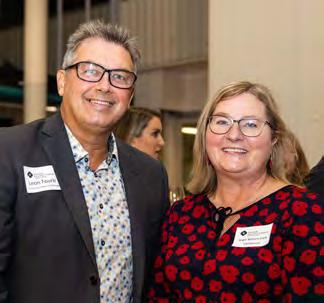
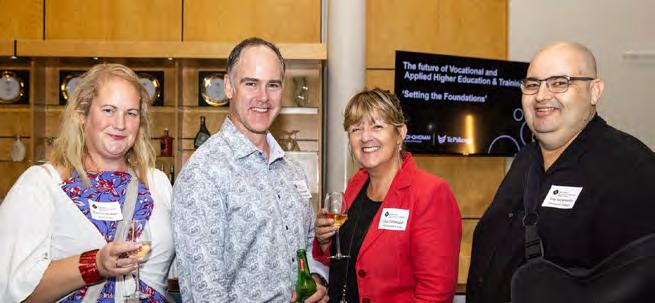




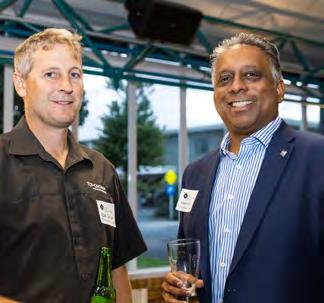
1 7 4 8 5 9 10 2 3 11 12


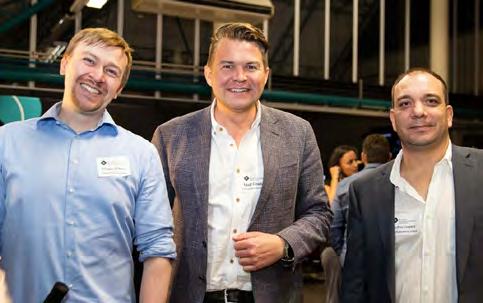


Situated on the edge of the Kopurererua Valley sits the 13.5 acre expanse of The Historic Village. What was once a living museum is now an eclectic mix of shops, community organisations, a thriving art scene and a number of wellequipped corporate venues for hire.
Whether you’re seeking a space for 10 or 150 The Historic Village venues can accommodate a range of conferences, meetings and events. A selection of outdoor spaces are also available, suitable for up to 5000 people.
Hosting your event in this diverse community hub not only provides a vibrant and relaxed atmosphere, but also means your function can be tailored with personalised add-ons such as workshops, art lessons and team-building activities across the grounds and native bush. These activities
entail working with and supporting resident not-for-profit and community organisations and tick the corporate social responsibility box by contributing to our region’s wellbeing.
Significant investment has been put into the venues in recent years, with the Village Hall being the most recent to receive an upgrade.
This stunning venue with exposed beam ceilings comes equipped with a plug-in play audio system, built-in bar and a full commercial kitchenette.
The Village Hall is the most popular business venue at the Vil-

lage and accommodates up to 150 seated theatre style.
The Schoolhouse is perfect for smaller meetings, workshops, or training sessions. This original Mt Maunganui schoolhouse will transport your guests back to their early primary school days with large sash windows, polished native timber floors and an original chalk board. The venue comfortably accommodates 20 guests in a U-shape style setup.
You can book a unique, intimate venue at the Village, such as the art deco Village Cinema. Seating 60 people in fixed tiered seating with

Tauranga Fringe,January 2022
individual foldout tables, a large screen and 7.2 surround sound; the Village Cinema is a unique and memorable event space.
Events at the Village extend beyond corporate functions and earlier this year the Tauranga Fringe Festival hosted over 3,500 people in a street party like no other.
The picturesque Village Chapel and adjoining outdoor Amphitheatre are popular for weddings with many locals and visitors choosing to hold their special day there.
A visit to The Historic Village isn’t complete without popping
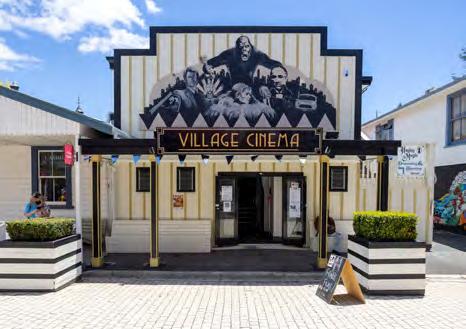
into the Whipped Baker to experience their world-famous-in-NZ doughnuts.
Business events at the Village are able to cash-in on the delicacies that emerge from the on-site bakery, with catering and staff available for any event.
The venues at The Historic Village represent great value and come with a team of experienced individuals that will go above and beyond to ensure your event is successful.
For more information hosting your event at The Historic Village visit www.historicvillage.co.nz or contact village@tauranga.govt.nz.


Hundreds of New Zealand businesses are sitting on a goldmine, and they don’t even realise it. While the herd is sleepwalking through economic uncertainty, smart entrepreneurs have discovered a wealth of snoozing assets in their own backyard.
Before we get to the good stuff, allow me to introduce myself.
I’ve spent more than 15 years advising the likes of Coca-Cola, Microsoft, Amazon and Virgin Atlantic how to make more profits. I’m also from the UK, but let’s face it, nobody’s perfect.
After working with CEOs across many different industries, one glaring fact stood out brighter than a sunburned Brit on Papamoa Beach: Leaders are feeling more shackled than at any other point in history.
Golden Handcuffs
Why are businesses caught in a bind when the vanity metrics look so good? Website hits, social media engagement, ad spend, even sales revenue: It all appears so promising from the outside.
But growing a wealthgenerating, profitable enterprise is more challenging on the inside. When you throw into the mix a bruised economy, supply chain worries and employee dramas that make Shortland Street look like a documentary...business stops being quite so fun.
And that’s why most leaders are feeling trapped and restrained by the companies they worked so hard to build. They spent their entire career

> BY FREDDIE BENNETT
Guiness World Record Holder, podcast host and bestselling author, Freddie is known as ‘The Profit Hunter’. He helps business owners enjoy more time, money and freedom by discovering and extracting hidden profits in their companies. Freddie@conqueryourmedia.com
chasing the financial breakthroughs that will provide the freedom they sought, but it never seems to quite happen.
It’s like when you wait a lifetime to meet Prince Charles, but when the big day arrives, Prince Andrew rocks up instead.
You’re not angry, but you realise it’s not going to be the story you thought you’d be telling your grandchildren about.
Luckily, there is a key that allows you to enjoy the freedom (and the profits) you’re entitled to.
Sleeping Giants
The secret lies in ‘sleeping assets’.
Now, we all like an asset. We all LOVE an asset that is generating wealth. Especially if that asset generates wealth without us putting in much effort.
Traditionally, we view
assets as things like property, shares, inventory and so on.
But there is a different class of ‘sleeping assets’, which are often overlooked. And if you know how to find them, you’ll discover millions of dollars are snoring away, just waiting to be prodded.
They might not be as glamorous as a new website, Facebook Ad campaign or your very own NFT, but they are hundreds of times more profitable.
The best thing about sleeping assets is – you probably already own them: Customer databases.
I know, it sounds as sexy as watching Basic Instinct with your parents, but I promise you it can be a lot more enjoyable.
Too many businesses are putting the focus on the costly and time-consuming process of acquiring new customers,
while overlooking the customers they’ve already paid to acquire.
It’s like the friend who goes on expensive holidays, looking for their next fling while ignoring the love of their life back home…
Yes, they make it sound very exciting, but it’s not exactly a formula for long term success and wealth.
So if you want to awaken these sleeping assets, how do you do it? Let me show you.
I worked with one professional services firm who used this approach to grow their business by 300% and also reduce their advertising spend by 40% just by creating a new offer and selling it to their shunned-and-ignored database of past clients.
One software company was sick of spending over $100,000 a month on social media ads, so instead we generated over $120,000 a month just by offering product A to
the buyers of product B and vice versa.
The crazy part is, businesses know it’s easier and cheaper to sell more stuff to people who are already buying their stuff.
But when it comes to making it happen, they’re often sleeping on the job.
Do you ignore that database of past or unsubscribed customers like they’re an ex-partner at a wedding?
Or maybe you send the whole database a generic email newsletter once a month, because, well….it’s just what you’re supposed to do, isn’t it?
But why aren’t you sending SMS messages to all those customer phone numbers? Why aren’t you crafting an offer and sending it through the post to their address?
Why aren’t you partnering
with other businesses who can enrich the lives of your customers, and making a joint offer from which you both can profit?
The inconvenient truth is, business owners have that nagging feeling, knowing there are about 500 things they COULD be doing to increase their profits. But they haven’t got the time or energy to do them. Because they’re too busy running a business.
Sweet Dreams
So next time you’re lying awake, wondering how you can make more money with less effort…
Instead of desperately dreaming up schemes to ‘attract new customers’, consider shaking up some sleeping assets you already possess. You might just wake up to a nice surprise in your bank account.
We are hopefully now past the peak of the current Omicron outbreak and with many returning to work after suffering through the illness, it seems that the pressure is starting to come off slightly. However, the follow-on effects with brain fog and fatigue have been a common side effect plaguing many.

> BY KELLIE HAMLETT
Talent ID are Recruitment Specialists and can support you through your recruitment process. Please feel free to talk to us about this by calling 07 349 1081 or emailing kellie@talentid.co.nz
orkplaces are still under strain from limited staff numbers and there are studies suggesting 58 percent of employees are suffering burnout and fatigue. This a major area of concern for employers and employees alike.
Doctors are warning not to push yourself too hard after the initial infection due to the risks of “long covid” and as much as employers want their work flows back to normal they also don’t wish for their employees to overdo it too soon and fall over completely.
A report from Auckland’s DHB to board members stated fatigue management had previously been classed as “high” risk, but this had been temporarily elevated to “critical” to allow for the impact of the Omicron surge and the follow-on effects with ongoing
symptoms like brain fog and fatigue.
These symptoms can interfere with your ability to perform your job. Before that becomes a problem, here are some options to consider.
Open lines of communication
Open up the lines of communication – this will allow a discussion to happen around solutions that can assist in a return-to-work program that allows time to recover and still the ability to participate in the work. Employers need to be supportive and understanding. And employees need to be stating the facts, with statements like – “I want to get back to work, and I need help to do it.” Keeping the lines of communication open will allow a smoother transition
back to normal.
Breaks throughout the day are essential. It is all too common for staff to miss breaks or work through their lunch hour. Everyone is entitled to a break and these are designed to allow a more effective rested employee to be more productive.
This time should be utilised effectively and perhaps instead of a catch up on social media and a cup of coffee, change it up with a power nap, or get outside and catch some vitamin D with a short stroll around the block.
For longer breaks,ensure that you get sustenance and this could include power nap if required to get through the day when you first return back to work.
For many that have been through Covid-19, the blocked nose and sore throat went

away quickly, but not the mental fatigue. With many reporting that this can last for weeks after other symptoms subside. With reports of many returning to work, stating they needed to rest multiple times throughout a day. It has been suggested to break up your day and if possible add in another 10 or 15 min break whilst still in recovery.
Another idea that many are utilising is to use leave entitlements (if any left). Arranging to do half days, or use hours to extend lunch breaks once or twice a week while in recovery mode. This allows majority of work to still be completed and more time to rest.
Brain fog is real
Brain fog is real with Covid and simply putting sentences
together can be a struggle.
Reports suggest that for some the ability to recall short-term was difficult, and even longterm memory was affected.
People’s names, regular tasks and essential duties of roles can be details forgotten. It can really knock confidence in one’s ability to do their job. Working together to create a task list will help avoid missing any general tasks required and also help with prioritising tasks throughout the day too.
If the workload is too much and there really aren’t enough hours in the day to get it all done, then look at bringing in a temporary recruit to take the pressure off.
This is where temporary staff have a place in the market, covering when permanent staff are unwell, isolating or in support over a busy period or
return to work journey. We can assist in finding a temp that suits your role. With placements happening sometimes within hours to fill the shortage and provide additional support, it is a great option to have to continue on business as normal and allow permanent staff time to recover or return to work with support. Working together throughout the recovery and returnto-work journey will ensure a smoother transition. Understanding and care from both sides and keeping the lines of communication open and honest will be paramount to return to previous abilities and production levels. With hope we can all learn from this experience and allow for changes for less likely cases of burnout, additional fatigue and long Covid.



